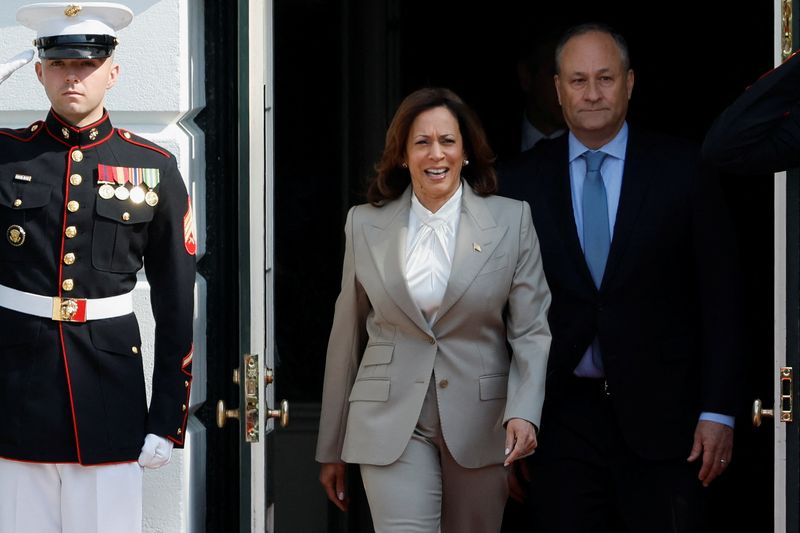President Joe Biden has withdrawn from the 2024 presidential race, endorsing Vice President Kamala Harris, with the news slightly boosting the Democrats’ chances of winning the election.
As highlighted by Goldman Sachs (NYSE:GS) economists, the prediction market-implied odds of Harris being nominated by the Democrats jumped to around 80% following Biden's endorsement.
The Democratic Party's deadline to nominate their candidate is set for their convention from August 19-22. However, there is also consideration for a virtual nomination in August before the convention.
Biden previously secured nearly all the delegates in the primaries, but these delegates are not legally bound to support Harris despite Biden's “full support and endorsement.” An open convention remains a possibility, as additional candidates could enter the race given that the threshold to qualify to be considered for the nomination is low. More concretely, only 300 delegate votes out of approximately 4,700 are required to be considered for the nomination, Goldman economists explained.
"Harris holds clear advantages, including a number of high-profile endorsements in the hours following Biden’s announcement and direct access to the Biden-Harris campaign funds raised so far," they added.
Meanwhile, the prediction market-implied odds of Democrats winning the White House increased slightly but still remain below 40%.
“This small move likely reflects the fact that Harris trails Trump by a similar margin as Biden in the average of recent polls,” economists noted.
Similarly, the odds of Democrats winning the House and Senate also showed little change, while the implied odds of a Republican sweep decreased by around 4 percentage points to 41%, though this remains the most likely outcome by a significant margin.
In terms of fiscal and trade policy, economists said the Democrats’ agenda is not expected to shift meaningfully if Harris becomes the nominee.
Regarding the potential Democratic vice presidential nominee, prediction markets currently favor governors Josh Shapiro (D-PA), Roy Cooper (D-NC), Andy Beshear (D-KY), and Senator Mark Kelly (D-AZ).
Looking ahead, economists believe the attention will likely center on endorsements from Democratic leaders and potential challengers, the delegate counts for Harris, the status of the potential early August "virtual nomination," and swing-state polling between Harris and Trump.
